Hands-on with the new pirate MMO from the creators of ARK
Arriving on December 13, Atlas combines EVE Online and ARK for something altogether different.
We took everything that we loved about ARK and put it in the largest game world ever for an action-based MMO.
Jesse Rapczak
Studio Wildcard, the creator of survival game poster child ARK: Survival Evolved, is making a pirate-themed sandbox MMO where you can capture and govern entire islands, build and sail galleons, and then fight in massive sea battles against other players. It's EVE Online mashed with ARK, and it's releasing on Steam Early Access on December 13 for $30.
Atlas was just announced live onstage at The Game Awards, but I got the chance to visit Studio Wildcard earlier this month and experience it firsthand.
"We took everything that we loved about ARK and put it in the largest game world ever for an action-based MMO," Studio Wildcard co-founder Jesse Rapczak tells me. We're sitting in the conference room of Studio Wildcard's Seattle office, debriefing after an explosive fleet battle that ended when the last enemy player accidentally loosed a fire arrow at his own feet and burned to death. It's then that Rapczak says something I didn't expect: "We built some new technology that stitches together a world that's 1,200 times the size of a single ARK server."
That's Atlas at its simplest: A pirate-themed successor to ARK stretched over a massive swathe of ocean home to hundreds of islands. But Atlas' ambitions far exceed anything ARK tried to achieve. For one, it's truly an MMO where thousands of players can exist in one space together—and I mean together in the EVE Online sense of the word where everyone plays on one server, with some small caveats. Atlas will only have one PvP and one PvE server for each major region, so players won't be arbitrarily segregated across hundreds of identical servers as in World of Warcraft.
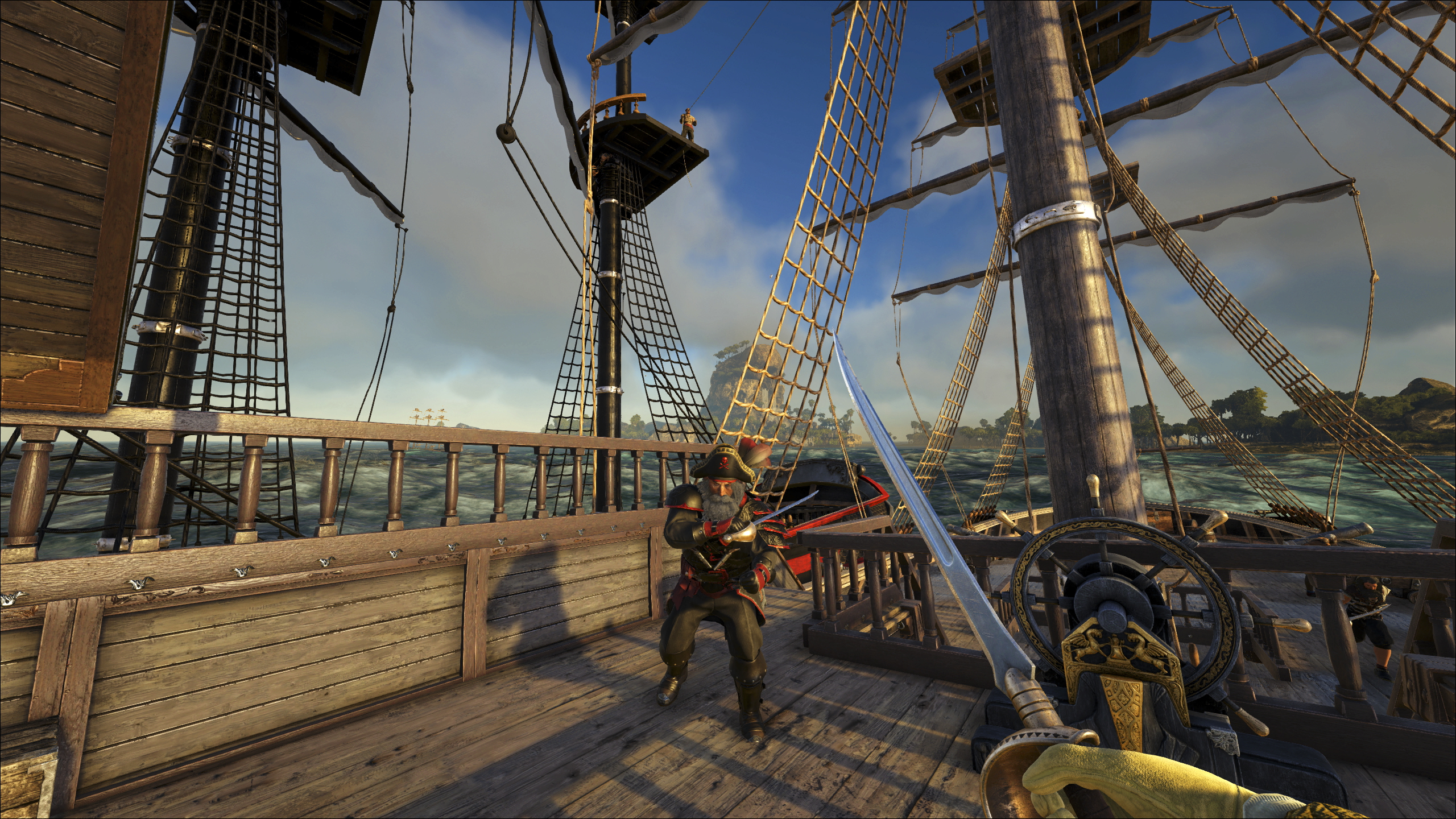
With just two choices of server to choose from, Rapczak is hoping that Atlas' PvP server will eventually mirror the smörgåsbord of political scheming and bloody warfare that makes EVE Online so fascinating. "We really expect people to take advantage of the large size of the world to stake their claim on parts of the map, establish a government, and build ships and outposts," Rapczak says.
But unlike EVE, you won't need to wrestle with an arcane user interface just to play it. For all that Atlas does, it's still deeply rooted in the first-person survival experience of ARK. That means chopping trees, taming wildlife, and managing basic systems like thirst and hunger while out at sea. That'll undoubtedly disappoint those who already don't like ARK—I was always indifferent to it—but once I took the helm of a brigantine, I didn't mind those similarities nearly as much.
A pirate's life for me
Atlas' simulation of life aboard a ship is about as authentic as it gets while still being fun. Similarly to Sea of Thieves, Atlas finds joy in emulating the little tasks that make a ship actually sail. Players can personally man cannons, unfurl and turn sails, or patch holes in their ship. On bigger ships, you'll need a coordinated team to manage everything, but Atlas also will let players hire NPC crew members to boss around. "A big part of the game is recruiting crew and keeping them paid and fed so you can actually drive these ships around," Rapczak explains. "And we've got a bunch of cool systems in the game for simplifying controls of your shipmates."
The biggest gaming news, reviews and hardware deals
Keep up to date with the most important stories and the best deals, as picked by the PC Gamer team.
It's a system that builds off of ARK's dinosaur management feature to give you that same degree of control over your AI crew and their various stats. From the helm or lieutenant's post of my brigantine, I can command my crew to fire, repel invaders, and more. This theoretically makes Atlas more approachable to players who prefer to go it alone, but everyone can benefit from having a few AI squadmates on their ship.
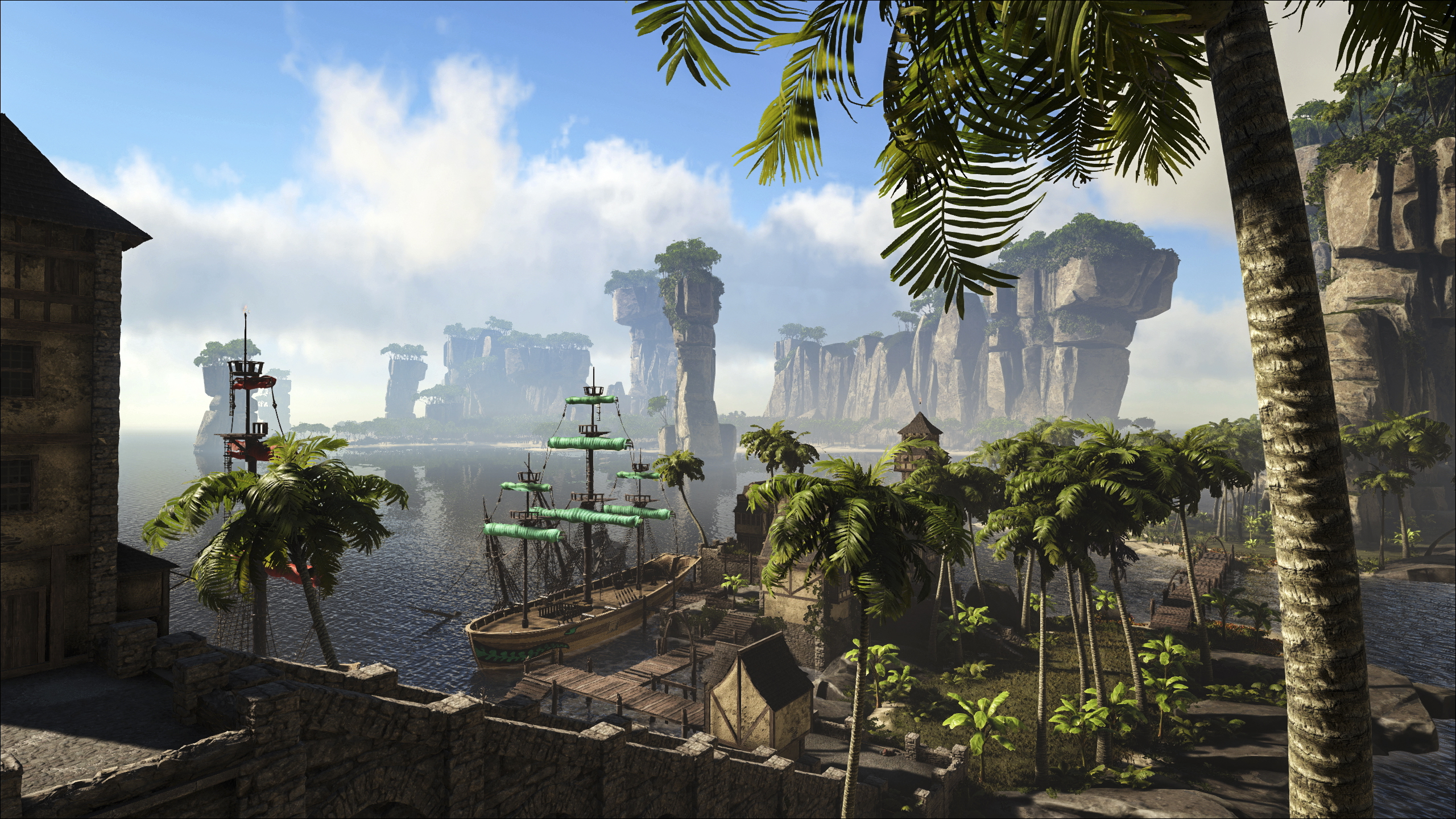
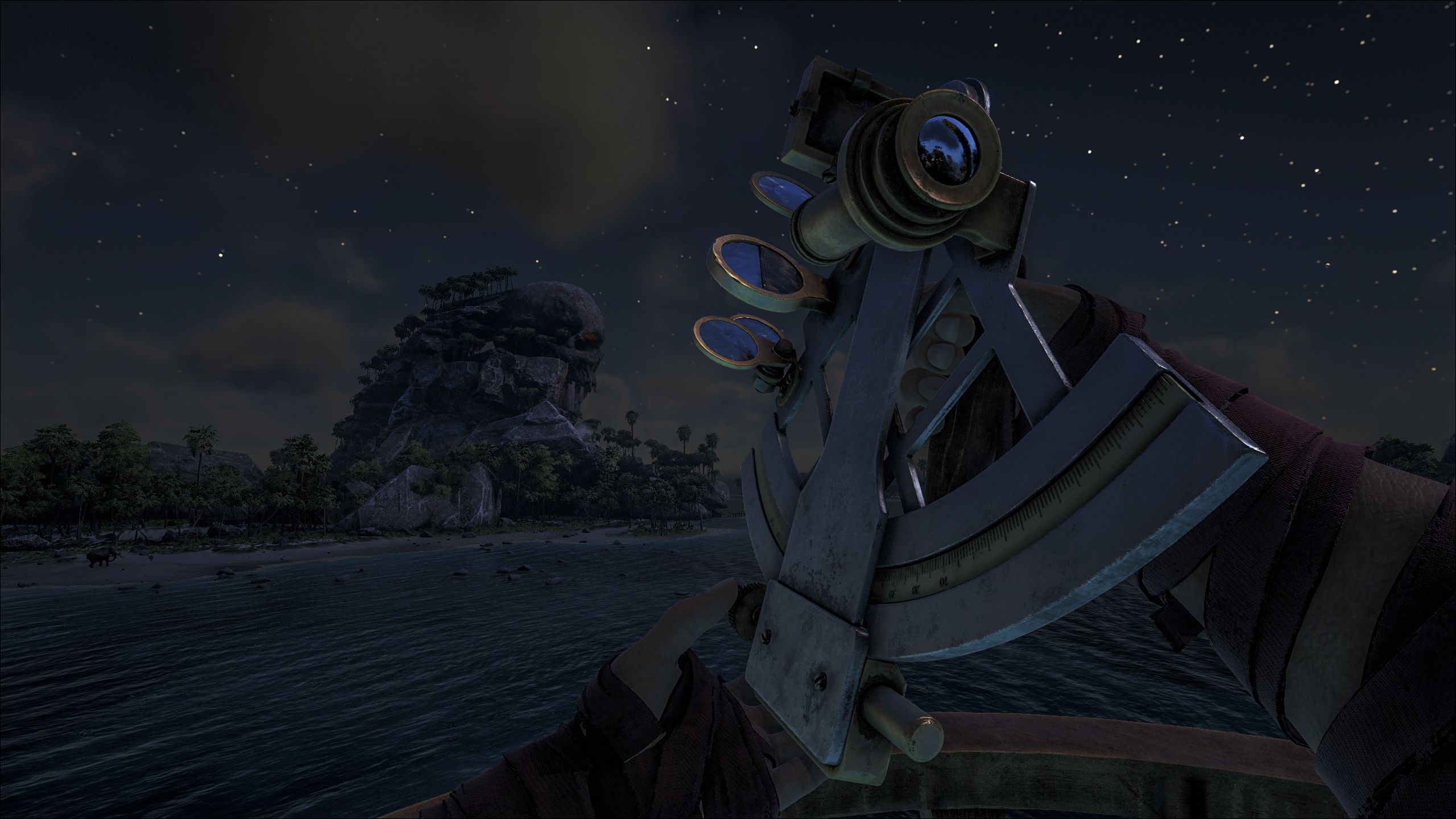
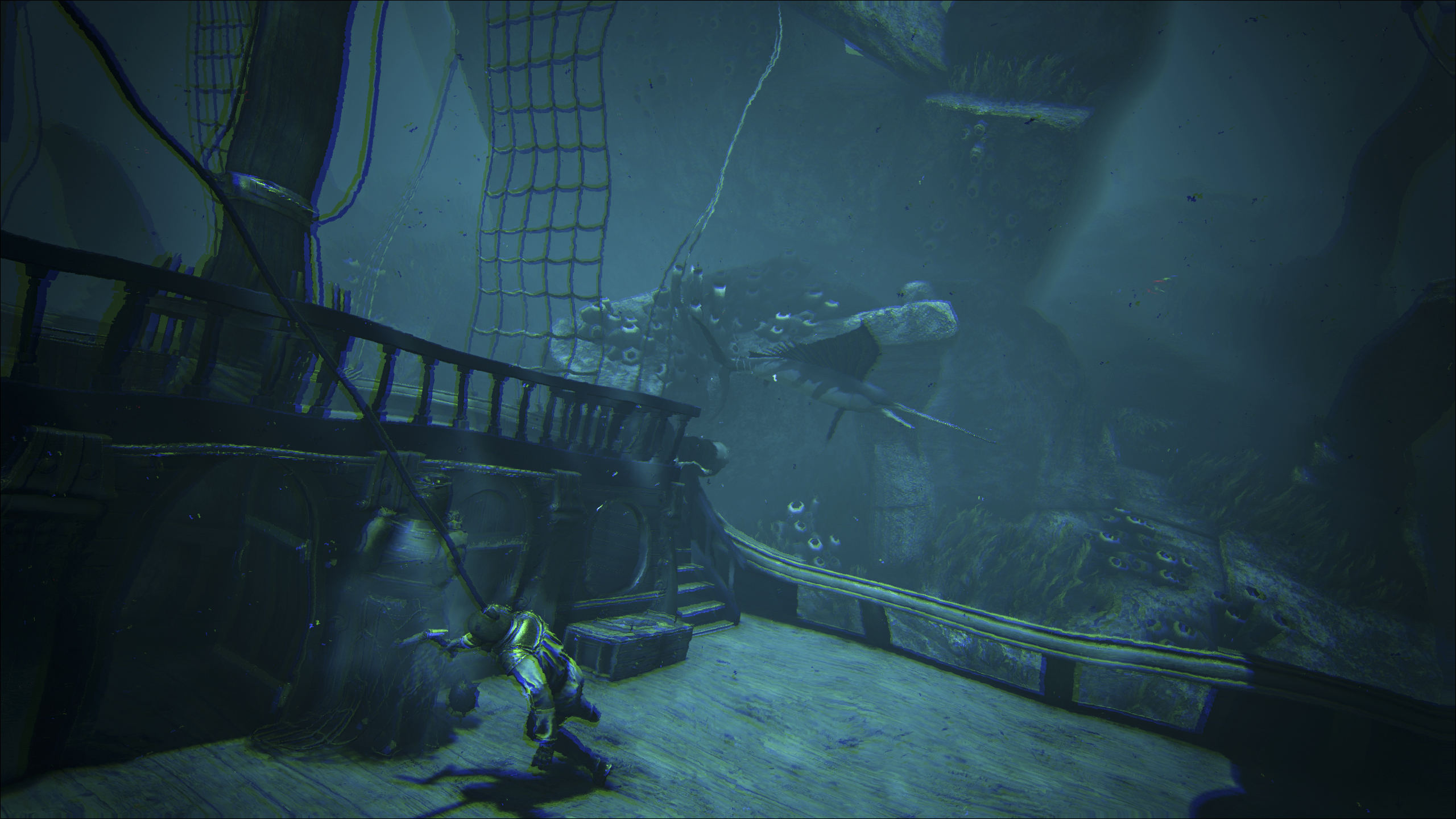
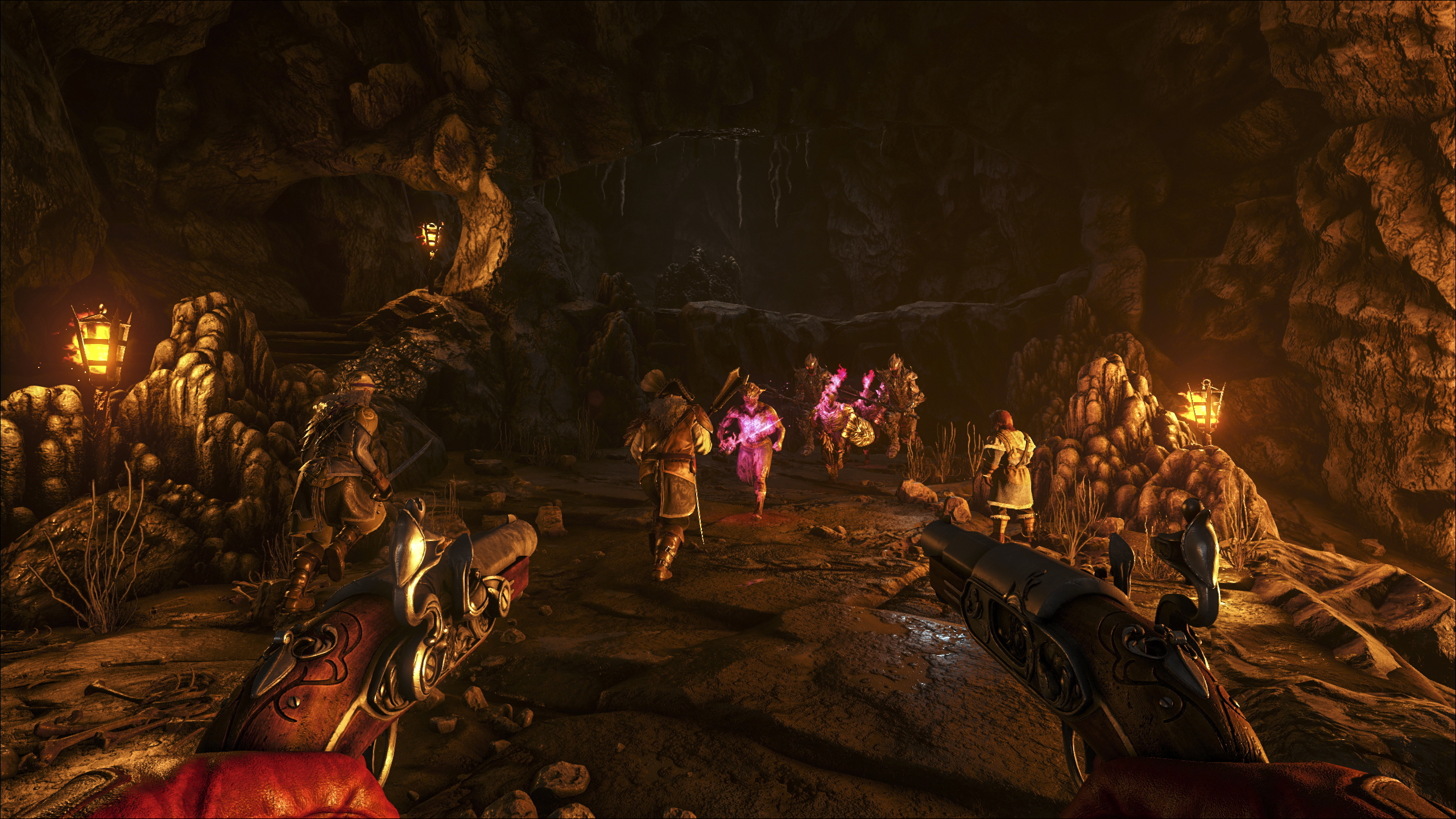
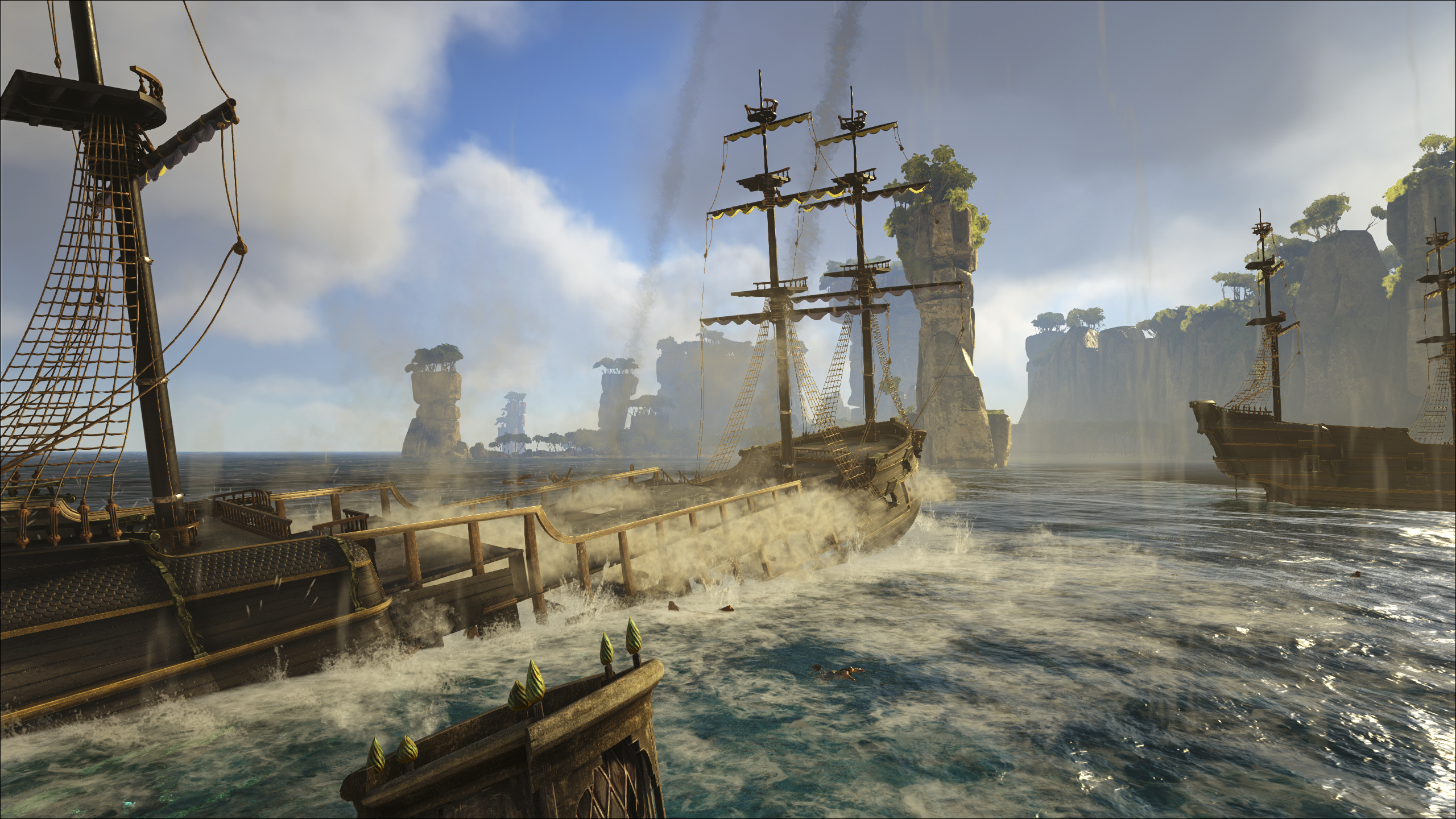
A big part of the game is recruiting crew and keeping them paid and fed so you can actually drive these ships around.
Jesse Rapczak
While you can still build bases on land much like you would in ARK, Atlas' ships are just as customizable. At launch, there will be five size templates to choose from ranging from pitiful rafts all the way up to enormous galleons. Each template provides the base structure of the ship but players are free to customize parts of it how they can please. On the brigantine, for example, the deck had more than enough space to erect a watchtower or high walls that shield the crew from incoming fire. Likewise, players can carve out the space below the deck with stairs, ladders, and crew cabins in whatever layout they choose. Artistic minded players can go all out painting their ships crazy colors, while a special tool will let you import an emblem to proudly display anywhere you like (my brigantine sported PC Gamer's logo on its flags).
Just don't get too attached to your ship. If EVE Online taught me one lesson, it's that all good things come to a fiery, tragic end. During our mock battle, six ships squared off on a serene seas. While we maneuvered, cannons poked holes in each others' hulls until one by one ships started sinking. Exchanging cannon volleys and delegating repairs was fun, but it was much more exciting when two ships neared each other and each respective crew invaded the other ship. There's a bit of strategy to how PvP battles go down because dead players can always resurrect in beds hidden below deck. Destroying those beds first is always a good idea.
From the helm, I was given a bird's eye view of the chaos while I struggled to steer, which itself is no easy task. Rotating the sails to catch the wind is critical to keeping a ship's momentum going, and even though on-screen indicators display all of that information, it was still a tough challenge to properly steer. More than once I'd act as if I was playing Assassin's Creed Odyssey and try to turn my ship on a dime only to lose the wind entirely and end up a sitting duck for enemy ships. It's easy to see how skill and strategy will play a role in determining Atlas' most skilled captains.
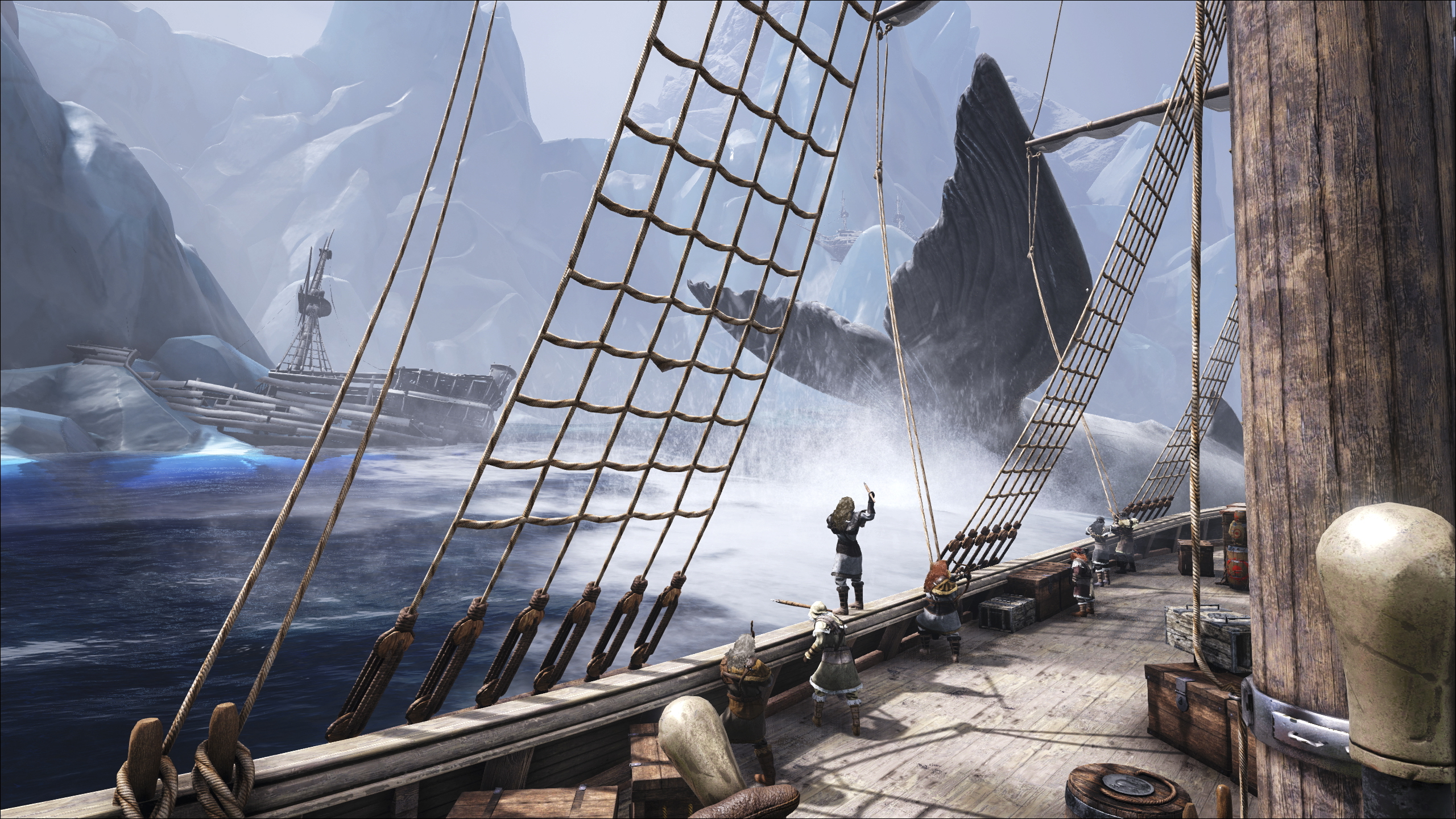
Our battle out at sea was particularly cool because of the level of black-magic trickery going on behind the scenes to make Atlas work as a single server MMO. It's entire world is more like 1,200 different ARK servers stitched together on a grid spanning several biomes that range from frozen arctic wastes to white sand mediterranean beaches. Each grid contains a few individual, handcrafted islands and when you sail away from those to another grid of different islands you are also seamlessly transferring to a different server node. It's a setup similar to EVE Online's galaxy of New Eden only without hidden loading screens.
The end result is an enormous map that I imagine will be more than big enough to house the 50,000 players Atlas can support at one time if they're all spread out. Rapczak explains that this system also lets his team handle enormous battles more elegantly too. If players all pile into one grid to fight, Studio Wildcard can simply restrict access to that specific area for a time, forcing those late to the party to spread out and fight elsewhere. It's a problem that EVE Online has historically failed to solve. I'm not convinced that Atlas will fare any better if enough players decide it's time to brawl, but I'm keen to see what happens.
Here be monsters
When players first start a new character, they'll spawn into a one of a few freeport towns that double as a safe zone so they can learn the ropes and build a ship without immediately being blown up. Make no mistake, though: Atlas is a sandbox MMO in the true sense that there is little in the way of a linear story that players must follow.
Wildcard Studio co-founder Jeremy Stieglitz tells me that there's a main quest that involves travelling the entire scope of the world to collect nine artifacts and bring them to the center of the map where players can fight an enormous sea demon aboard their ships. Just don't expect to roll into villages and see a dozen golden checkmarks adorning the heads of its residents. "We're not going to [beat] Blizzard in terms of making content," Stieglitz says. "We're not the kings of making content, and I'd rather focus our capabilities on building systems, both gameplay systems and systems for players to own the world themselves."
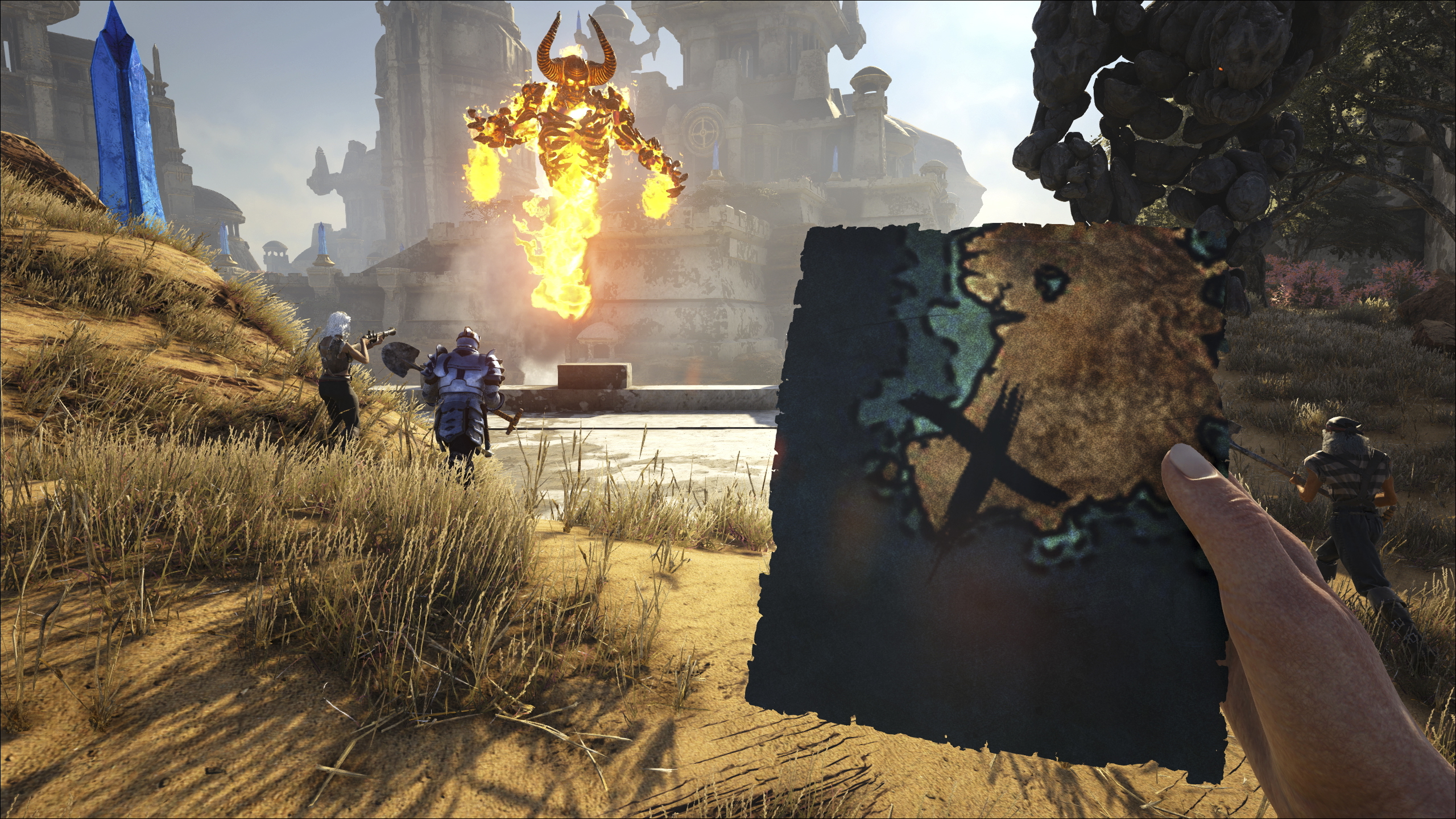
Stieglitz mentions that Atlas will launch with a basic government system where players can claim ownership over a piece of land and prevent other players from building there. Within that domain, governing players can set taxation rates that automatically deducts a portion of all resources and treasure gathered there straight into their bank. "There's a real reason to become a benevolent government and own a huge swath of the world map but invite players to come in and ally with you and become serfs," Stieglitz says as an example.
If owning land isn't your thing, there's plenty of smaller distractions you can occupy your time with. At one point during our demo, we discovered a bottle with a randomly generated treasure map inside of it that led us on an adventure to the next island over. With our ships all but sunk, we constructed a raft and all piled on with one person manning the single sail while the rest of us used our keyboards to play musical instruments to pass the time. That's when a bunch of ghost ships appeared through the fog and began chasing us, leading to a tense fight that we barely survived aboard our rickety raft armed with a single cannon.
It was a very Sea of Thieves kind of moment, to be sure, but it felt different knowing this was happening in one tiny slice of a persistent, handcrafted world where our actions had consequences. If we lost the fight, there wouldn't be a new raft waiting for us when we respawned. I can't imagine the pain some players will feel watching dozens of hours of hard work slowly sink beneath the sea.
There's plenty of other PvE pursuits too. Like ARK, you can tame and ride various animals, build yourself a nice home, or explore the massive world and discover all manner of secrets or rare resources to trade with other players. And because Atlas is in Early Access, new features will hopefully arrive at a steady pace.
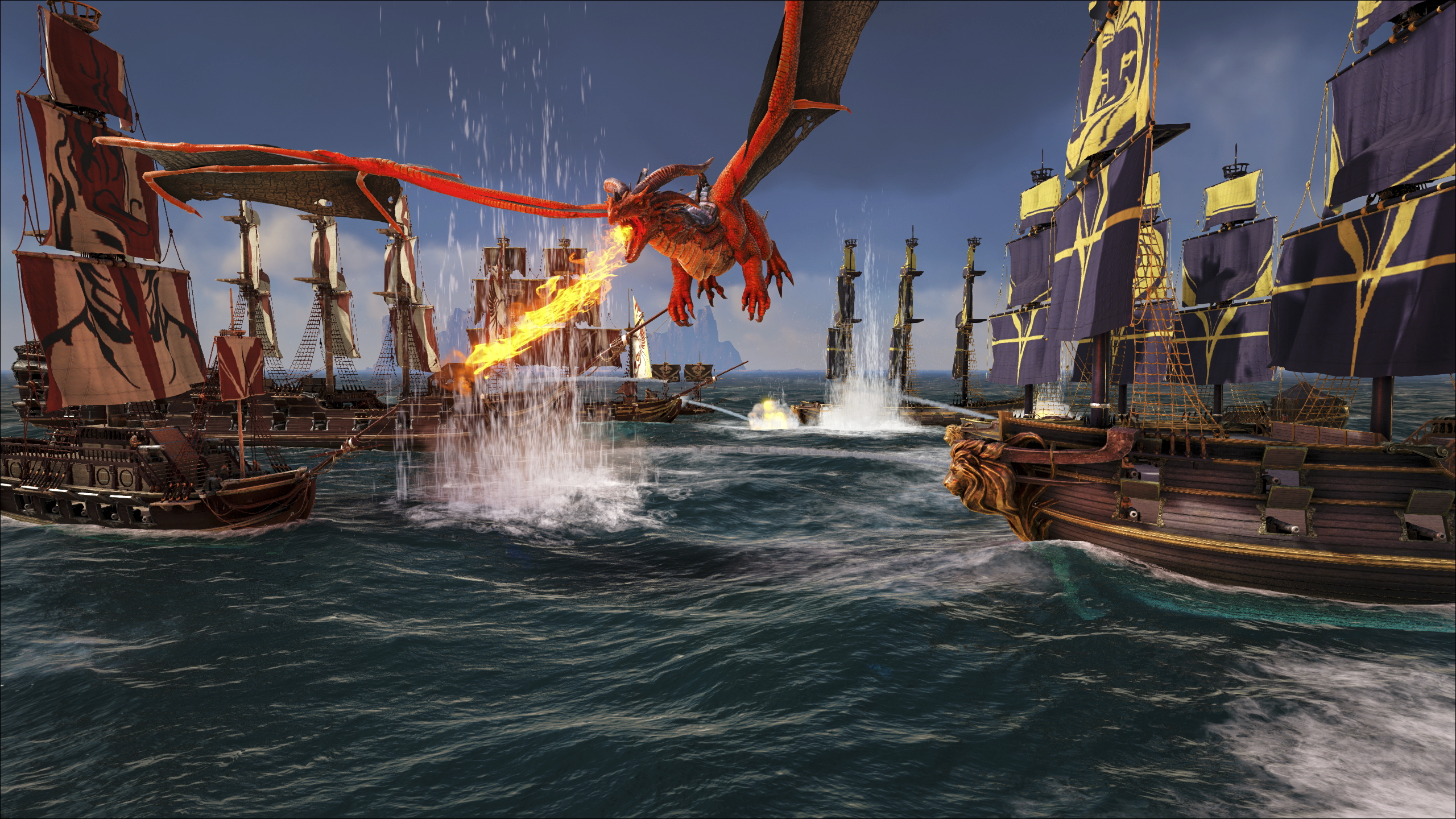
It's here, talking about the future of Atlas, that both Rapczak and Stieglitz get the most excited. After they explain some of the batshit absurd plans they have, I can see why. For example, players in Atlas will age and eventually die if they get too old, forcing players to start a new character. But Stieglitz tells me the second phase of that feature will include a full systems where players can mate and birth children that they can "transfer" their stats to and take control of when they reach a certain age. Studio Wildcard is also working on a tarot card-based magic system, and land ownership will be expanded so players can even establish specific laws that have to be followed while in their territory. The idea is that, one day, players will log into Atlas and find a populated and lively world driven entirely by the whims of its players.
Appealing to their community's whims is especially notable because Studio Wildcard will also be releasing all of the dev tools for Atlas so that players can make their own servers—an extremely uncommon thing for an MMO. Using either a provided dev kit or the Unreal Engine, players can resculpt the landscape, create their own mods, and host their own Atlas servers at no extra charge beyond the cost of server hosting.
Blood in the water
Of course, it's hard not to talk about Studio Wildcard without being mindful of how many times they pissed off their community. Whether it was sudden changes in the price of ARK, the release of paid-DLC when ARK was still in beta, or just the ongoing struggle to get it to run passably well, Studio Wildcard consistently courted controversy in the two years it took ARK to actually launch. Are players ready to start over with an entirely new Early Access game?
When asked, Stieglitz and Rapczak don't try and wiggle away from the question. "We made snap decisions without discussing them with the community first," Stieglitz admits of ARK's turbulent development. It's a mistake he doesn't want to make again, which is why Studio Wildcard is being more upfront with their long term plans for Atlas.
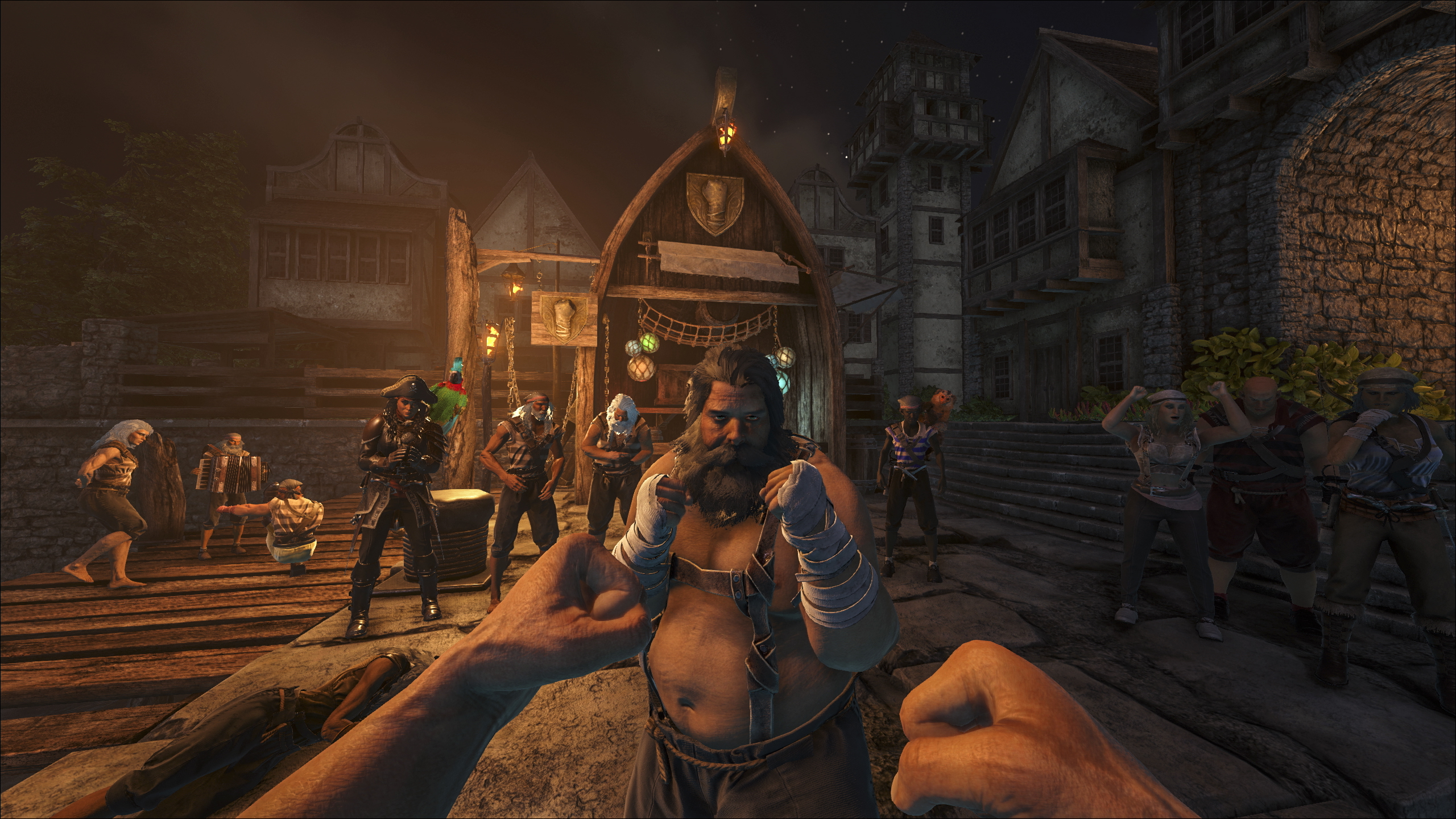
The world of Atlas is obviously going to grow, but it should grow for everybody.
Jeremy Stieglitz
Stieglitz says Atlas will likely be in Early Access for two years or longer. It will not have any paid DLC or expansions because "the world of Atlas is obviously going to grow, but it should grow for everybody." To help cover the cost of development, though, Atlas will eventually add cosmetic microtransactions before leaving Early Access. The idea, at this time, is that players will be able to buy outfits and decorations but in-game methods will be available to "grind" for these items. And though Atlas only costs $30 right now, it will eventually cost $60 when it leaves Early Access.
As for performance, Stieglitz contends that "at launch Atlas will run better than ARK does now" and will continue to improve from there. Part of that is due to improvements made to both the Unreal Engine and Studio Wildcard's own code, but Rapczak also says that, no surprise here, open sea is a lot easier to render than dense jungles.
We'll have to wait until December 13 to find out whether Stieglitz's claim about Atlas' performance is true. But any reservations I have about Studio Wildcard are eclipsed by the enormous potential Atlas has to do something interesting and new in an increasingly stagnant genre. I've seen firsthand the kind of wonderful and bizarre stories players create in ARK—and that was just on a single server with 50 people. If Atlas proves just as popular, I can't imagine what kind of wild shenanigans 50,000 players will get up to.
Atlas will launch on Steam Early Access on December 13. Check out its Steam page here.
With over 7 years of experience with in-depth feature reporting, Steven's mission is to chronicle the fascinating ways that games intersect our lives. Whether it's colossal in-game wars in an MMO, or long-haul truckers who turn to games to protect them from the loneliness of the open road, Steven tries to unearth PC gaming's greatest untold stories. His love of PC gaming started extremely early. Without money to spend, he spent an entire day watching the progress bar on a 25mb download of the Heroes of Might and Magic 2 demo that he then played for at least a hundred hours. It was a good demo.


